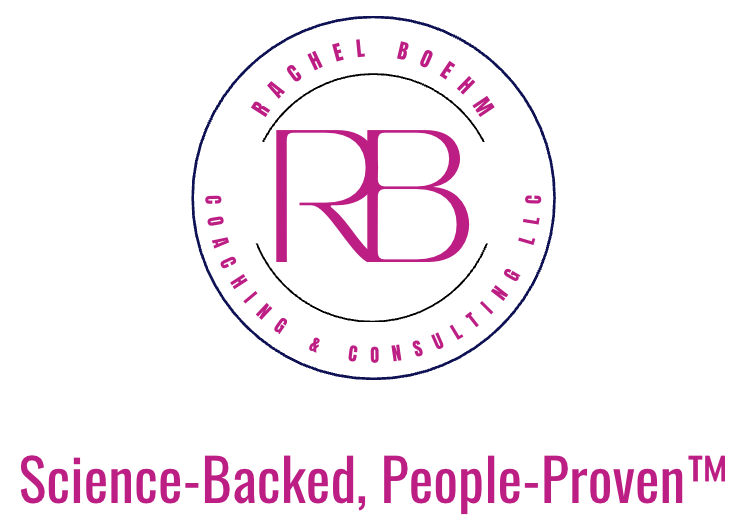So You Think You’re Done Now? Why Leaders Can’t Afford to Consider Burnout and Stress a “One-and-Done”
In my work as an organizational psychologist focusing on stress, burnout, crisis leadership, and employee performance, I often encounter a common reaction during training sessions with leaders: “I’ve been through burnout before, so I know how to handle it now,” or “Where were you 10 years ago when I really needed this?”
While these statements may seem harmless, they reflect a mindset that can be counterproductive both for the individual and for the broader group.
Stress, uncertainty, and change are not one-time challenges—they are recurring realities of life and leadership. Assuming you’re “good now” can leave you unprepared for what’s next and unintentionally discourage others from seeking support when they need it most.
If you care about leading, not just managing, this perspective deserves a second look. Staying proactive can help you manage future challenges and elevate your performance to new heights.
Just Because You Got Through It Once Doesn’t Mean You Won’t Go Through It Again
Stress and burnout aren’t challenges you conquer once and never face again. Life is unpredictable, and new pressures—whether organizational changes, personal setbacks, or external disruptions—will inevitably arise. The assumption that “I’ve been through this before, so I’m good now” can leave you unprepared for future challenges and vulnerable to repeating past mistakes.
Similarly, assuming your past experiences will feel the same in the future is a mistake. Stress does funny things to our minds and bodies. Just because chronic stress or burnout felt one way in the past does not mean it will feel the same way again or come from the same type of pressure.
Here’s the reality: Stress impacts your cognitive and emotional functioning in ways that ripple through your leadership and personal life. Acute and chronic stress disrupts your ability to think clearly, make sound decisions, and regulate emotions effectively. It can lead to reactive behaviors, strained relationships, and even ethical blind spots—all of which affect not only you but also those around you.
The key isn’t just recognizing when stress returns—it’s taking deliberate steps to stay ahead of it. Leaders who perform at their best don’t wait until burnout or overwhelm sets in; they build habits and systems that allow them to maintain clarity, adaptability, and emotional balance even during uncertainty.
For example:
Recognizing Patterns Early: Leaders who proactively reflect on their stress triggers—whether it’s workload imbalances or interpersonal tensions—can spot warning signs before they escalate.
Strengthening Decision-Making Skills: By understanding how stress narrows perspective, leaders can consciously pause to evaluate options more thoroughly instead of defaulting to reactive choices.
Fostering Emotional Awareness: Emotional intelligence helps leaders regulate their own responses while minimizing the spread of stress within teams—a concept known as affect contagion.
By focusing on these proactive strategies, leaders don’t just recover from stress; they build a foundation that allows them to handle challenges with greater confidence and effectiveness in the future.
The Impact of “I’m Good Now” on Others
Another reason to rethink the “been there, done that” mindset is its impact on those around you. When leaders dismiss their struggles as something they’ve already conquered, it can unintentionally send the message that others should handle their challenges alone as well and are weak if they resurface. This creates a culture where people hesitate to ask for help—whether out of fear of appearing weak or because they assume their struggles aren’t valid compared to someone else’s past experiences.
If your organization or group brought me in to speak about stress or burnout, it’s likely because they want to foster an environment where people feel supported in addressing these issues—not one where silence or self-reliance is seen as the only option. By acknowledging that stress is an ongoing challenge for everyone (yourself included), you set an example that encourages others to be proactive about their own mental, physical, and emotional health.
Why Support from an Outside Expert Matters
As a leader, you may feel confident in your ability to manage stress and burnout on your own. After all, you’ve navigated challenges before and come out stronger. But here’s the truth: while self-reflection and personal strategies are important, leaders go further, faster with the support of an objective outside guide.
Private coaching with a consulting psychologist trained in these issues (🙋♀️) offers a unique advantage—one grounded in science, not just anecdotal advice. With a trained professional by your side, you gain:
Objective insights: A coach helps you identify blind spots in your decision-making, emotional regulation, and approach to leading others—areas that are often difficult to see on your own.
Tailored strategies: Instead of generic tools, you’ll receive evidence-based solutions designed specifically for your challenges and goals. In my case, Science-Backed, People-Proven™ solutions.
Accelerated growth: With expert guidance, you can move beyond trial-and-error approaches and make meaningful progress more efficiently.
The benefits don’t stop with you. The same professional who supports your personal development can also help your management team and employees thrive. Whether it’s equipping leaders to handle uncertainty or fostering employee engagement and performance, investing in expert-led coaching creates ripple effects across your organization.
Take the Next Step
If this resonates with you, I invite you to schedule a commitment-free 15-minute consultation. Together, we’ll explore how private coaching or organizational training can help you stay ahead of stress while elevating your leadership impact.
If that feels a bit too bold, you can start by taking my free quiz to find out if your daily routine (aka your hustle) is helping or hurting and putting you back on the burnout path.


